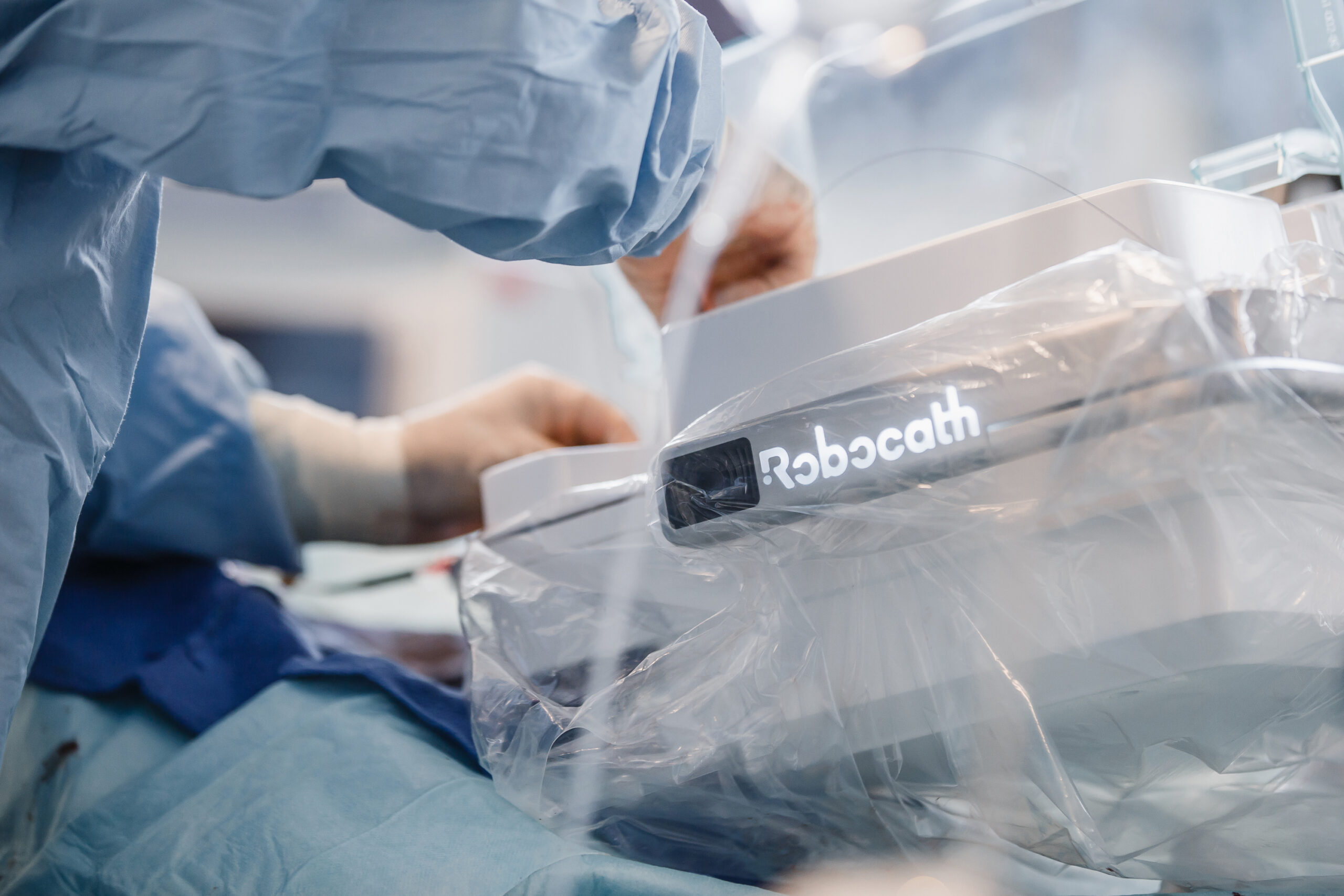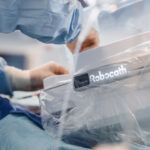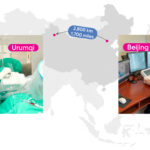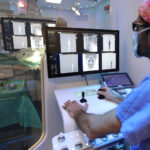Share this post:

Rouen, France, January 11, 2022 – Robocath, a company that designs, develops and commercializes innovative robotic platforms for the treatment of vascular diseases, announces today that it has concluded its ‘R-Evolution’ clinical study.
The study was aimed at assessing the safety and efficacy of the R-One robotic assistance platform. Sixty-two patients across six European hospital centers participated: the University Hospitals in Rouen and Caen with Prof. Durand and Prof. Sabatier, the Clinique Pasteur in Toulouse with Dr. Fajadet, all based in France; the ZNA Middelheim Hospital in Antwerp, Belgium, with Prof. Verheye; the Maasstad Clinic in Rotterdam, Netherlands, with Prof. Smits and Dr. Van Der Ent; and the National Interventional Cardiac Surgery Institute in Luxembourg with Dr. Pereira and Dr. Muller. The last patient was enrolled on October 8, 2021, at the Caen University Hospital Center. Full results of the study are due in May 2022 and will be presented at the EuroPCR conference.
Prof. Eric Durand, interventional cardiologist at the Rouen University Hospital Center and joint principal investigator for the study, explained: “I feel honored to have had the chance to be joint principal investigator of the R-Evolution clinical study. I have been involved in the development of this robotic platform since the beginning, with Prof. Remi Sabatier from the University Hospital of Caen. I was able to participate in the development, preclinical studies and first-in-human procedures with R-One. The robot is intuitive, easy to understand and offers a very fast learning curve. Beyond that, as well as being more precise than working by hand, it also opens the door to new maneuvers. These clinical cases have strengthened my belief that vascular robotics is a necessary development in our sector and that it will allow us to offer high-quality treatment to all patients within a work environment that is far superior, for both physicians and their teams.”
Dr. Jean Fajadet, interventional cardiologist at the Clinique Pasteur in Toulouse and joint principal investigator for the study, said: “Robotics is, in all likelihood, the future of interventional cardiology; there is no doubt in my mind that this study will prove that. Vascular robotics now allows us to position a stent with millimeter precision and place it safely, as the robot holds and guides the instruments throughout the procedure. The movement is fluid and usage is intuitive. The system offers overall working conditions that are far more comfortable than operations carried out by hand and completely protects the physician from X-rays. Robotics will eventually enable us to complete more complex procedures and will be the main vector for global integration and transformation in cath labs. This will enhance healthcare sites’ attractiveness by improving the quality of care provided to patients. I am delighted to be one of the first interventional cardiologists in the world to work with this significant technological advance in our sector.”
Philippe Bencteux, president and founder of Robocath added: “The conclusion of the R-Evolution study marks the end of years of hard work and investment by everyone involved and I am grateful to all of them. We are genuinely on the cusp of a new era in vascular medicine. As the founder of the company, I am delighted to see our vision coming to life.”
Lucien Goffart, CEO of Robocath concluded: “We have once again reached a crucial milestone in our company’s history. This is the result of a vibrant and productive partnership between the hospital centers and the Robocath staff, who have worked incredibly hard against the backdrop of the current medical context. They all have my most sincere thanks. Vascular robotics has immense potential for use. We now plan to capitalize further on the clinical experience with our product to accelerate our growth in Europe by opening a Europe-wide observational registry.”
About Robocath
Founded in 2009 by Philippe Bencteux, MD, Robocath designs, develops and commercializes robotic solutions to treat cardiovascular diseases. As an active player in the evolving medical robotics industry, these innovative solutions aim to make medical procedures safer thanks to reliable technologies, while complementing manual interventions.
R-One™ is the first solution developed by Robocath. It uses a unique bionic technology that optimizes the safety of robotic-assisted coronary angioplasty. This medical procedure consists of revascularizing the cardiac muscle by inserting one or more implants (stents) into the arteries that supply it with blood. Every 30 seconds, somewhere in the world, this type of procedure is performed. R-One is designed to operate with precision and perform specific movements, creating better interventional conditions. Thanks to its open architecture, R-One is compatible with market-leading devices and cath labs.
In a prospective, randomized, controlled pre-clinical trial, R-One demonstrated safety and efficacy as it achieved 100% technical procedure success and no MACE (major adverse cardiovascular events). R-One received the CE marking in February 2019 and started its clinical application in September 2019. Currently R-One is available in Europe and Africa.
Robocath aims to become the world leader in vascular robotics and develop the remote treatment of vascular emergencies, guaranteeing the best care pathway for all. Based in Rouen, France, Robocath has more than 60 employees.
To download documents, you can right-click on the links above and chose « Save link as… »




